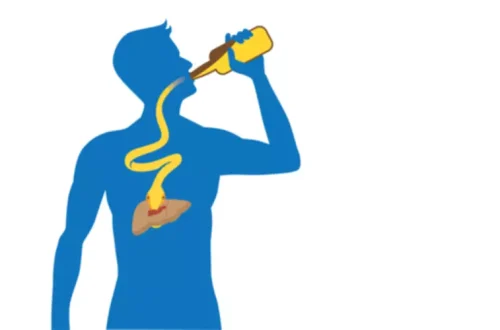
Despite the desire to quit drinking, many people will refuse treatment or help. Often, there is a mindset that it is a personal problem that they need to “solve” themselves, despite it being notoriously difficult to achieve. Another way that many alcoholics may deflect from their relationship with drinking is by drawing comparisons to behaviors in others that they deem “worse” than their addiction. Sometimes, this might be pointing to people they know who drink more or have more severe consequences after drinking.
- For example, you might imagine an “alcoholic” as someone who is constantly near-blackout drunk, and someone who’s unable to maintain a job or family life.
- It passes slowly when times are tough and moves too quickly when life is smooth.
- Some high-functioning alcoholics do recognize that they have a problem with drinking.
- Recovery is possible through therapy, rehab programs, and support groups.
Find Alcohol Treatment
It also makes someone more likely to die in a car wreck =https://ecosoberhouse.com/ or from murder or suicide. And any alcohol abuse raises the odds of domestic violence, child abuse and neglect, and fetal alcohol syndrome. A doctor can check a person’s drinking levels and recommend further treatment options. The more a person drinks, the more at risk they are of developing severe alcohol use disorder.
High-Functioning Alcoholics
Being able to recognize the warning signs of a functional alcohol use disorder can help you take the next steps toward treatment, or you might be able to help someone you love. Broadly, the term alcohol use disorder can describe a spectrum of medical conditions characterized primarily by not being able to stop or control drinking. When you lose control over drinking patterns, it can create negative consequences in different areas of your life. Alcohol addiction is one of the most severe levels of an alcohol use disorder, but these disorders can also be mild or moderate.
Renewal Center for Ongoing Recovery
These criteria are often internal struggles, not observable to others. Someone can live with alcohol use disorder without anyone else noticing. People with alcohol use disorder are dependent on alcohol, but that does not mean that they drink every day. For those seeking addiction treatment for themselves or a loved one, all phone calls are confidential and are available for 24/7 help. All calls will be answered by Pinnacle Health Group or Still Behavioral Health Group, both of whom are paid advertisers.

Organizations such as the American Society of Addiction Medicine can guide you to help, too. If they are open and willing, they might enter into an inpatient rehab and begin a new chapter in life. If they are in denial, you will have to hold fast to your boundaries. But your value is not dictated by your loved one and their addiction.

After all, they have managed to maintain the appearance of success alcoholism despite their addiction. But most high-functioning alcoholics have friends or loved ones who help them cover up the consequences of their drinking. These individuals may unconsciously encourage or enable the alcoholic’s behavior by allowing the alcoholic to avoid the negative consequences of destructive drinking.
Does Tolerance Contribute to Alcoholism?
High-functioning alcoholics often neglect activities that high functioning alcoholic once brought joy, which are crucial for mental health and overall well-being. This neglect can lead to a loss of passion and a diminished quality of life. Pursuing hobbies and personal interests provides a sense of purpose and fulfillment.
- Often, this will involve issues that everyone deals with in their own way, so it’s not a big leap of logic to believe that someone might have a few drinks to take the edge off.
- Any treatment center receiving calls from the site is a paid advertiser.
- Someone can live with alcohol use disorder without anyone else noticing.
- The longer you live with AUD, the higher your risk of developing complications that can lead to death.
There should be zero doubt that living a sober lifestyle can be extremely difficult. Many people start the road to recovery but stumble back to the substance of their choice—sometimes multiple times. Unlike a traditional alcoholic, the functioning alcoholic is better at hiding mistakes. Yet the action of hiding those mistakes is a sure sign that they’re an alcoholic. Recognizing these signs is the first step toward understanding and addressing high-functioning alcoholism.


Whether you have an alcoholic spouse, partner or other loved one, you may be wondering how to help. High-functioning alcoholics can benefit from having an at-home support system before, during and after any form of treatment for their addiction. There are hundreds of resources all over the country designed to address the issue of alcohol abuse and addiction.
Is it Possible to Effect Change When a Loved One Has an Addiction?
Alcohol use disorder (AUD) carries significant risks and negative consequences. These can affect both physical and mental health, as well as impact relationships and daily functioning. Understanding these risks is crucial for recognizing the severity of the disorder and seeking appropriate help. Despite appearing to have it all together, high-functioning alcoholics face significant challenges. Their ability to mask their dependency often delays necessary interventions, leading to more severe health and personal issues down the road.




